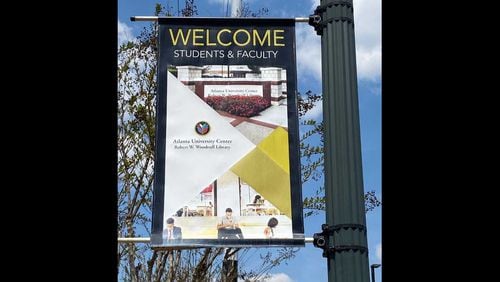The leaders of Atlanta’s historically Black colleges and universities are voicing their opposition to Georgia’s new voting law.
The presidents of Clark Atlanta University, Morehouse College, Morehouse School of Medicine and Spelman College released a joint statement Wednesday saying the controversial law will negatively impact access to voting for many Georgians, particularly African Americans. Morris Brown College, a historically Black school nearby, released a statement expressing its dismay with the law.
“Despite the argument that the law expands voter access, for many in our communities, the ‘Election Integrity Act of 2021′ will have a negative and tangible impact,” the joint statement, in part, said. “The restrictions now in place will curtail voter participation in marginalized populations across Georgia.”
“The right to free and unfettered elections is the very core of our democracy,” the statement continued. “As historically Black institutions of higher learning, we are committed to a community engagement effort to educate the citizens of Georgia and every community we touch about the impact of this legislation on their right to vote. We see this as our obligation, and we understand that this is how we strengthen our democracy and illuminate the path to justice, equality and a civil society where opportunities to exercise the right to vote are expanded.”
The four private schools, combined, have about 8,000 students. They are part of the Atlanta University Center Consortium, an organization of local HBCUs that shares educational resources. Student leaders were active in get out the vote efforts for last November’s general election and January runoffs.
Critics say the law is a politically calculated effort to discourage people of color from voting after Democratic Party candidates narrowly won the presidential race and both U.S. Senate seats in Georgia. Major League Baseball announced last week it is moving this year’s All-Star Game from Truist Park in Cobb County because of its concerns about the law.
Gov. Brian Kemp, a Republican, has vociferously defended the law, which he signed about two weeks ago. He’s argued the legislation expands voting access and will limit fraud. Kemp has called criticism of the law “cancel culture” motivated by political opponents.
Other higher education leaders have been critical about the bill.
Emory University President Gregory L. Fenves said in a statement two weeks before the law was passed that it was concerned about legislation that would limit voting access in Georgia.
African Methodist Episcopal Church Bishop Reginald T. Jackson, who is also chairman of Morris Brown College blasted Georgia-based companies that he and supporters believe should have spoken more forcefully against the law before it was passed. The church has discussed a boycott of some businesses.
Morris Brown College President Kevin D. James said in a statement: “We look forward to being able to return our business to these corporations once Bishop Jackson’s outlined steps are followed. Moreover, I encourage the other Historically Black Colleges and Universities located in Georgia to join the boycott.”







